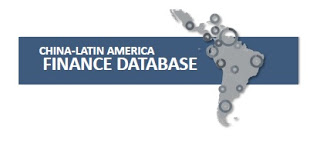Islamic State has their sights on taking over both Lebanon and Jordan. Iran is controlling this whole objective. The West and allies are doing almost nothing to stop this mission.
War Risk Rises in Middle East
Iran’s weapons industries are at the service of Hezbollah, while Hezbollah tries to acquire precision-guided rockets and missiles for future attacks on strategic Israeli sites.
The Middle East is increasingly becoming an area where it is harder for actors to exercise control over their situations or to control events.
Despite Israel’s deterrence, the risk of an inadvertent clash between Israel and Hezbollah is rising
The new year holds many new dangers and few opportunities, as Israel’s two near enemies, Hezbollah in Lebanon on its northern front and Hamas in Gaza on its west, continue their large-scale armament programs, and prepare for a future day when they will fight another war with Israel.
Although neither Hezbollah nor Hamas has an interest in sparking a war with Israel any time soon — when they stand to suffer widespread, lasting, and crippling damage from any such clash — both are nevertheless preparing in earnest.
Hezbollah, armed with over 100,000 rockets and missiles, can rain down an unprecedented number projectiles on Israel. In addition, Hamas and Hezbollah are planning cross-border raids by sending highly trained murder squads, in order to take their fight into Israeli territory, as Hamas began doing this past summer through the tunnels it built for that purpose in Gaza.
With the region in chaos, and each side arming and training itself for when hostilities break out, the risk of a localized incident inadvertently igniting a wider clash — or simply an error in judgment — appears to have grown significantly.
Hezbollah has shown signs in recent months that it is prepared openly to retaliate in response to any events it interprets as Israeli transgressions against its main base of operations in Lebanon.
Israel has warned Hezbollah and Iran on multiple occasions to refrain from smuggling advanced weapons into Lebanon. Israel has also, according to foreign reports, taken action several times to intercept attempted weapons smuggling.
Iran’s weapons industries are at the service of Hezbollah, mass-producing projectiles for it, while Hezbollah continues trying to acquire precision-guided rockets and missiles for future attacks on strategic Israeli sites.
Even though Hezbollah, acting under Iranian orders, is neck deep in its involvement in the Syrian civil war, and is stretched across Syria and Lebanon, its pace of preparations for war with Israel continues unaffected. The Syrian conflict has even given it some new tools, which it can deploy against Israel, such as improved ability to coordinate ground maneuvers. This build-up of offensive abilities represents the most serious challenge to Israel’s security in the immediate vicinity.
 Hezbollah combat units, battle-hardened from fighting in the Syrian civil war, now have improved capabilities to deploy against Israel. Hezbollah combat units, battle-hardened from fighting in the Syrian civil war, now have improved capabilities to deploy against Israel.
|
Meanwhile, Hezbollah continues to try to carry out deadly terror attacks on Israelis overseas.
This does not mean that the Lebanese Shi’ite terror organization is seeking an all-out war at this moment — in fact, the opposite seems true.
Its actions seem designed to keep a confrontation with Israel on a low flame for the time being, while it focuses on Syria. Despite its extremist ideology, Hezbollah would not gain much from prompting Israel to unleash waves of devastating firepower on its assets across Lebanon.
Nonetheless, any “error” or misjudgment by Hezbollah could end up triggering a sequence of events that could well lead to war. Should that happen, there are no guarantees that the conflict would remain limited to Lebanon and Israel. Other arenas, such as Gaza and Syria, could easily be sucked in as well.
The Middle East is increasingly becoming an area where it is harder for actors to exercise control over their situation or to control events.
Israel still remains the most powerful side in the Middle East, and as it is now preparing to deal with growing semi-state guerilla-terrorist forces on its borders, it has to ready for itself for the possibility that a conflict on one border will quickly spread to another. In the past, it was believed that such conflicts could be short-lived, but the duration of future clashes may be lengthier than many have previously believed.
As its military continues assessing the challenges across the borders, Israel remains prepared for all eventualities.

